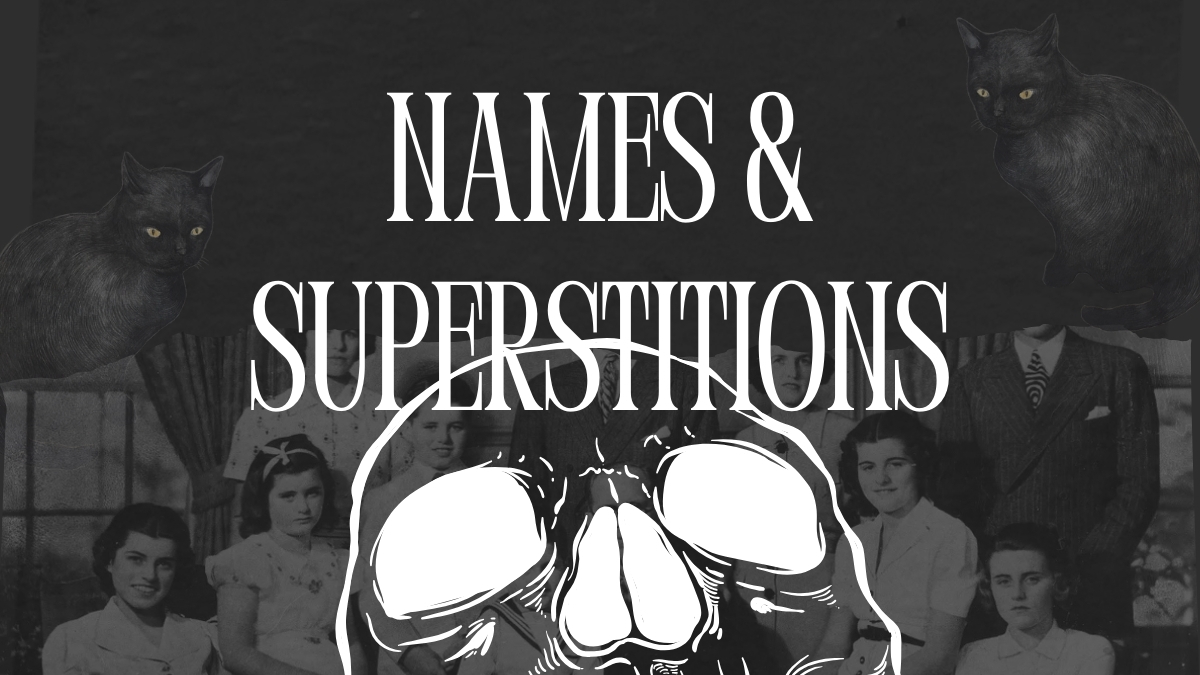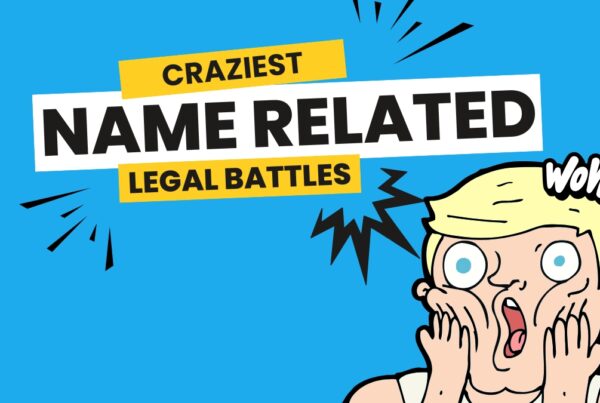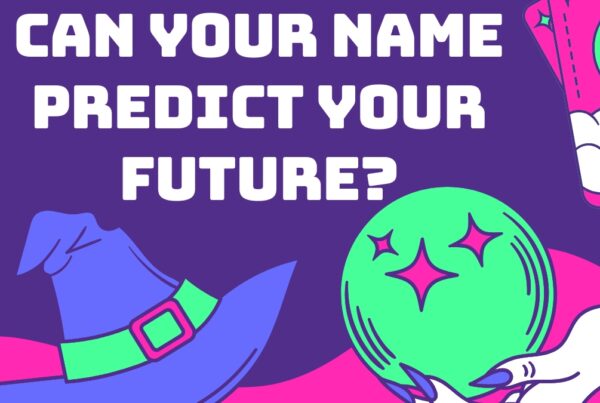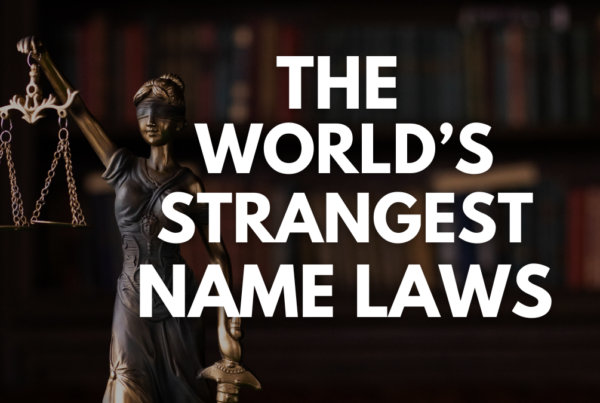Can a Name Bring Bad Luck?
Have you ever heard someone say a name is cursed or unlucky? Time has passed, yet people continue to believe that certain names can bring misfortune. Although names are typically just words, many cultures hold strong superstitions about certain names, linking them with tragedy, misfortune, or even supernatural forces. Some names are avoided, while others are believed to carry a dark past. However, do these beliefs have any basis in reality, or are they simply tales handed down through history?
In this article, we will explore the fascinating world of name superstitions, looking at names that are considered unlucky, why people fear them, and the real-life consequences of these beliefs.
Names Associated with Tragedy and Misfortune
The Curse of the Name “Adolf”
One of the most infamous names in history is “Adolf,” mainly because of Adolf Hitler. Due to his association with World War II and the Holocaust, this name became deeply unpopular and is now rarely used. In some countries, naming a child Adolf is even discouraged or frowned upon. Many people believe that giving a child this name could bring bad luck or unwanted negative attention.
The Unlucky “Kennedy” Family
In the United States, the Kennedy family is known for both power and tragedy. Many members of the family, including President John F. Kennedy and his brother Robert, faced untimely deaths. Because of this, some people believe that the name “Kennedy” carries a curse. Of course, this is likely just a coincidence, but the idea of a “Kennedy Curse” has fascinated people for decades.
The Infamous Name “Marie” in France
In France, the name “Marie” has been linked to unfortunate historical figures. One of the most well-known examples is Marie Antoinette, the queen who was executed during the French Revolution. Many other women named Marie in royal history have also met tragic fates, leading some to believe the name carries bad luck, especially in aristocratic circles.
The “James” Name Curse in British Royalty
In British history, the name “James” has been associated with misfortune. King James II of England was deposed in the Glorious Revolution of 1688, and James I of Scotland was assassinated. Because of these events, some believe that the name “James” is unlucky for royalty, and it has been used less frequently among kings in the modern era.
The Dark History of “Damien”
The name “Damien” gained a sinister reputation after it was used in the horror film The Omen for the child who was the Antichrist. Because of this, some people believe the name is cursed or associated with evil. Although it has ancient and noble origins, its connection to the film has made some parents hesitant to use it.
Superstitions About Names in Different Cultures
China: The Fear of Naming After Ancestors
In Chinese culture, it is considered unlucky to give a child the exact name of an older relative, especially if that relative has passed away. Doing so is believed to bring bad luck or even cause the child to inherit the misfortunes of the deceased. Instead, families modify names slightly to avoid this superstition.
Example: A family in China may choose to slightly alter a grandfather’s name instead of using it directly to avoid bringing bad luck to the child.
Japan: The Unlucky “Shi” and “Ku”
In Japan, certain sounds in names are avoided because they are associated with death and suffering. For example, the number four (“shi”) sounds like the word for death, so names that contain “shi” may be seen as unlucky. Similarly, “ku” sounds like the word for suffering, making it another sound that some families avoid when naming their children.
Example: Instead of naming a child “Shina,” which contains “shi,” parents might choose “Hina” to avoid bad luck.
Western Countries: The Fear of “Judas”
In Christian traditions, the name “Judas” is considered unlucky because of Judas Iscariot, the disciple who betrayed Jesus. Because of this, very few parents name their children Judas, fearing that it carries negative energy. Instead, similar names like “Jude” are more commonly used.
Example: A Christian couple might name their child “Jude” instead of “Judas” to avoid any negative associations.
Russia: The Superstition of Changing Names to Avoid Death
In Russian folklore, if a child falls seriously ill or experiences repeated misfortunes, some believe that changing the child’s name can trick death or evil spirits into leaving them alone. Parents may give a child a temporary “protective” name to shield them from harm.
Example: A child named Ivan who falls sick multiple times might be renamed “Vanya” in hopes of escaping the bad luck tied to the original name.
Italy: Avoiding the Name “Caesar”
In Italy, the name “Caesar” (Cesare) is sometimes seen as unlucky due to the tragic assassination of Julius Caesar. Because of his betrayal and death, some believe the name carries bad luck, and many parents prefer to avoid it.
Example: A historian in Italy may prefer to name his son “Marco” instead of “Cesare” to avoid any unlucky associations.
Greece: The Power of Saint Names
In Greece, many people believe it is bad luck to name a child after someone who is not a saint. Parents often name their children after a saint to bring divine protection and blessings. Giving a child a name that is not associated with a saint may be seen as inviting misfortune.
Example: Instead of naming a child “Niko,” Greek parents might choose “Nikolaos” after Saint Nicholas to ensure good fortune.
The Philippines: “Binaliktad” Names for Protection
In the Philippines, some parents use “binaliktad” (reversed) names to confuse evil spirits. If a child experiences repeated illnesses or bad luck, elders might suggest reversing the letters of their name or creating a new one to remove the curse.
Example: A boy named “Ramon” who falls ill frequently might be called “Nomar” instead to ward off bad luck.
The Fear of Naming After Deceased Relatives
In various cultures, naming a child after a deceased relative is believed to bring misfortune or even invite bad luck. While some may choose to honor a loved one by carrying on their name, many superstitions warn that it may cause the child to inherit negative traits or misfortunes that the ancestor experienced.
Example: In some cultures, particularly in parts of Eastern Europe, families avoid giving children the same name as someone who passed away young or in tragic circumstances. This is believed to prevent the child from experiencing the same fate.
The Influence of Numbers in Names
Certain cultures associate numbers with superstitions, and these numbers may affect the names given to children. For instance, in some parts of East Asia, the number 8 is considered lucky, and names may be chosen to include that number, while the number 4, which sounds like the word for “death” in languages like Chinese and Japanese, is often avoided.
Example: In China, many people avoid naming their children using the number 4, such as “Si” or “Fang” because it sounds like the word for death. Instead, they might opt for names with the number 8, like “Ba” or “Bai,” which are believed to bring good fortune.
The Avoidance of Naming After Animals or Objects
In certain parts of the world, naming children after animals or objects is seen as bringing bad luck. For example, naming a child after an animal may be considered disrespectful or inauspicious, as it may suggest the child will have a “lower” or “unfortunate” fate.
Example: In some parts of the United States, naming a child “Wolf” or “Fox” may be avoided because of the belief that it can bring a harsh or wild fate to the child.
Modern Perspectives: Do “Unlucky Names” Still Matter?
Though some communities still hold to ancient myths, modern naming trends displays a movement toward self-expression and relevance rather than fear.
The Role of Pop Culture
Fictional characters affect naming trends, at times strengthening superstitions, at other times reinventing names:
- Anakin (from Star Wars) is avoided by some due to its villainous turn, while others embrace it for its uniqueness.
- Hermione (from Harry Potter) was once rare but is now popular despite its Shakespearean tragic origins.
Scientific and Psychological Views
Research suggests that although names don’t determine fate, social impressions can impact opportunities:
- Studies show that unusual or stigmatized names may face subconscious bias in hiring or education.
- However, many people with so-called “unlucky” names thrive, proving that personal agency outweighs superstition.
The Rise of Name Reclamation
Some cultures are reclaiming names once deemed “cursed”:
- Lilith, once avoided, is now embraced by feminists as a symbol of independence.
- Lucifer, though still controversial, has seen niche popularity among those drawn to its etymology (“light-bringer”).
Where Superstitions Still Persist
Cultural & Familial Pressures
- In some Asian, African, and Latin American communities, elders may insist on avoiding names tied to:
- Death (e.g., Mara, meaning “bitter” in Hebrew but associated with death in some cultures).
- Historical tragedies (e.g., Hiroshima as a name remains rare in Japan).
- Numerology-based naming (e.g., in Chinese culture, ensuring a name’s stroke count is “auspicious”).
Workplace & Social Bias
- Research (e.g., a 2020 Harvard study) shows that “unusual” or “ethnic” names face discrimination in hiring.
- However, this is due to human bias, not the name itself being “unlucky.”
Pop Culture’s Role in Reshaping Perceptions
From “Cursed” to Cool
- Some names once feared are now popular due to media:
- Sabrina (linked to witchcraft) became beloved after Sabrina the Teenage Witch.
- Draco (from Harry Potter) is now edgy rather than evil.
When Fiction Reinforces Superstitions
- Anakin (Darth Vader’s birth name) is still avoided by some Star Wars fans.
- Regina (meaning “queen”) is sometimes avoided in Latin America due to associations with arrogance.
The Future of “Unlucky” Names
Generational Shifts
- Younger generations care less about superstitions and more about individuality.
- Globalization mixes naming traditions, diluting old taboos.
Reclaiming “Cursed” Names
- Movements to redefine names:
- Lilith (once a demon, now a feminist icon).
- Lucifer (used by some for its original Latin meaning, “light-bringer”).
The Data-Driven Approach
- Some parents use AI tools to test name perceptions before choosing.
- Websites like “Nameberry” track trends, showing how once-taboo names rise in popularity.
Crazy Facts About “Unlucky” Names You Never Knew!
We already talked about names like Judas and Adolf that people think are bad luck, but guess what? There’s a whole world of weird name superstitions out there! Here’s some wild stuff you probably haven’t heard before.
Banned Baby Names Around the World
Some governments actually won’t let parents use certain names!
- In France, you can’t name your kid Nutella (like the chocolate spread) or Fraise (which means “strawberry”) – they say these are too silly
- New Zealand said no to names like 4Real and Lucifer (that last one makes sense!)
- Iceland has an official list of approved names – sorry, no Batman or Spider-Man allowed!
Celebrity Names That Became “Cursed”
Some famous people’s names lost popularity after… well, drama happened:
- Elvis names dropped after Elvis Presley died – maybe too much pressure?
- Fewer babies got named Miley after Miley Cyrus’ wild phase
- And well… let’s just say some parents regret using Kanye lately
Names That Bring GOOD Luck
Not all name superstitions are scary! Some names are supposed to help you:
- Felix means “lucky” in Latin and is super popular in Germany
- Asher means “happy/blessed” in Hebrew
- The Irish name Niamh (pronounced “Neev”) means “bright” and is thought to bring a good life
Even Pets Have “Unlucky” Names!
It’s not just people names – some pet names are considered bad luck too:
- Black cats named Lucifer or Salem – kinda asking for trouble, right?
- Dogs named Loki (after the trickster god) might be too chaotic
- Naming your fish “Jaws”? That’s just tempting fate!
The Absolute Weirdest Superstitions
Get ready for some truly strange beliefs:
- Some cultures think naming a baby after a living relative “steals” their lifespan
- Others believe if you name a kid after a dead person, they’ll inherit that person’s fate
- In parts of Asia, saying certain names at night might summon spirits!
Should You Actually Worry?
Unless your name is Voldemort or something, you’re probably fine! Most of this is just old stories and superstitions.
Conclusion: Are Name Superstitions Real?
Although no scientific evidence supports the idea that names can bring bad luck, such superstitions are deeply rooted in many cultures. These beliefs affect the way individuals name their children and, in some cases, even how they direct their lives—whether it involves avoiding particular sounds, names associated with misfortune, or the understanding that a name holds a curse.
While some people keep the belief that the importance and background of a name affect a person’s life, others say that it is simply coincidence. No matter of your opinion on name superstitions, it is clear that names are filled with strong emotions, traditions, and stories. The next time you hear someone claim that a name is cursed, consider thinking twice before judging it as just a myth!
Curious about how far a name’s influence might really go? Dive into our next article: Can Your Name Predict Your Future? and explore the fascinating ways names might shape destiny, perception, and life paths.




